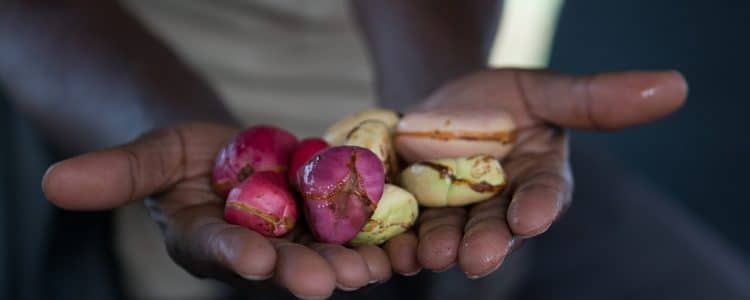
HIGH FIVES FOR INDUSTRIALISATION
The twentieth of November is Africa Industrialisation Day. Falling just between World Toilet Day and World Television Day you could be forgiven for not being aware. The theme this year is “Promoting Regional Value Chains in Africa: A pathway for accelerating Africa’s structural transformation, industrialization and pharmaceutical production”.
Without dwelling on the value or not of such international days, the idea of promoting regional value chains is increasingly gaining traction in the African development rhetoric. Unfortunately, the challenges associated with such an approach are getting less attention, underlying a need to better understand within and between-country political economy dynamics.
The need for industrialisation to encourage economic transformation in Africa towards more and better jobs is no longer contestable. Even if one can talk of the promise of services and innovations in agriculture as the future of African growth, the policy discussion is nonetheless about ways of encouraging investment that raises the productivity of existing jobs, or offers new employment opportunities – it may not be smokestack industrialisation, but it is industrialisation nonetheless.
As such, industrialisation is one of the AfDB’s ‘high fives’ for developing the African continent; the African Union has its AIDA (Accelerated Industrial Development for Africa) strategy. Indeed, industrialisation was central to the 1980 Lagos Plan of Action guiding regional integration on the continent, that was explicit about an “urgent need to implement a plan for the collective industrialisation of Africa”.
While the Lagos Plan envisaged, among other activities, the preparation of regional plans for the creation of major industrial complexes, and the creation of regional institutions to support industrialisation, the 1991 Abuja Treaty Establishing the African Economic Community called for African states to harmonise their industrial policies and adopt a common policy on industry. The recently launched African Continental Free Trade Area (AfCFTA) is arguably also an attempt to encourage continental value chains.
REGIONAL AGENDAS, NATIONAL ACTION
But the record of these different regional approaches has been somewhat mixed. A recent ECDPM paper on the political economy of the Southern Africa Development Community (SADC) industrialisation strategy highlights some of the main difficulties. Right from conception, targeting an increase in the value added in exports from a region seems like a logical step for a regional strategy, but opens the door to questions about winners and losers between countries, never mind within them.
The concern that South Africa stands to gain most from a regional industrialisation strategy is clear among other SADC member states. The selection of regional priority sectors such as pharmaceuticals also appears to make sense for regional cooperation – but national interests are often more about blocking competition from regional neighbours, which then undermines these regional objectives.
The importance of understanding national interests and approaches is made clear by another ECDPM paper looking at the specific case of cashew nuts in Côte d’Ivoire.
Cashews have been identified by the Côte d’Ivoire government as a priority sector, leading to a broad range of measures to stimulate production but also encourage processing – raising the value addition within the country as part of a wider economic transformation strategy. However, among the measures is a ban on exports of raw cashew nuts to its neighbours, as well as export taxes for raw cashew nuts that pass through the ports.
Though this raises revenues – collecting export taxes at port level is easier than collecting export taxes at porous inland borders – it favours extra-regional exports to cashew processing giants as India and Vietnam over exports to neighbouring West African countries such as Ghana. This goes against the regional value chain development logic of the ECOWAS industrial strategy, which favours processing within the region.
But the Ivorian government sees little difference between processing in India or Ghana, as long as processing is not taking place in Côte d’Ivoire. Indeed this holds true for other cashew producing West African countries such as Benin, which also ban exports of raw cashew nuts to neighbouring countries.
Beyond that, differences between countries in levels of subsidy to cashew production, minimum prices and bans between countries lead to cross-border smuggling, undermining the Ivorian objective if not that of the region (and arguably leading to informal regional value chains).
WHAT LESSONS FOR INDUSTRIALISATION DAY?
The rationale for promoting regional value chains is not wrong, but the interests and incentives at play within and between countries need far better taken account of. Rather than taking export bans as an anomaly that ‘shouldn’t happen’, policies should build on the fact that there is inevitably regional competition to gain market share in specific goods.
What then might a regional body such as ECOWAS or SADC do to encourage intra-regional trade and processing in the region over that taking place elsewhere? Encouraging policy harmonisation to reduce smuggling incentives might be part of it if countries can agree. Another role might be to share information, technological advances, and provide a common platform for common challenges – thus operating at the precompetitive stage.
Ultimately, industrialisation and regional value chains depend on the economic actors that produce, trade, and take decisions. In a context of weak public administrations, policy implementation and rule enforcement can be undermined if private sector interests are not at least partially served. Though regional private sector groups sometimes struggle – SADC recently launched the latest in several attempts at such a regional group – regional platforms bringing together public and private actors around specific value chains may be the only way to really ensure a proper understanding of the interests, incentives, and implications of policies to promote industrialisation in Africa.
Africa Industrialisation Day may be more sexy than World Toilet Day, but it is not less complex an issue for all that.
This article is an adapted version of its original appearance as blog post for The European Centre for Development Policy Management
(ECDPM). You can find the original source via this link. We would like to thank the authors and ECDPM for being able to republish.











